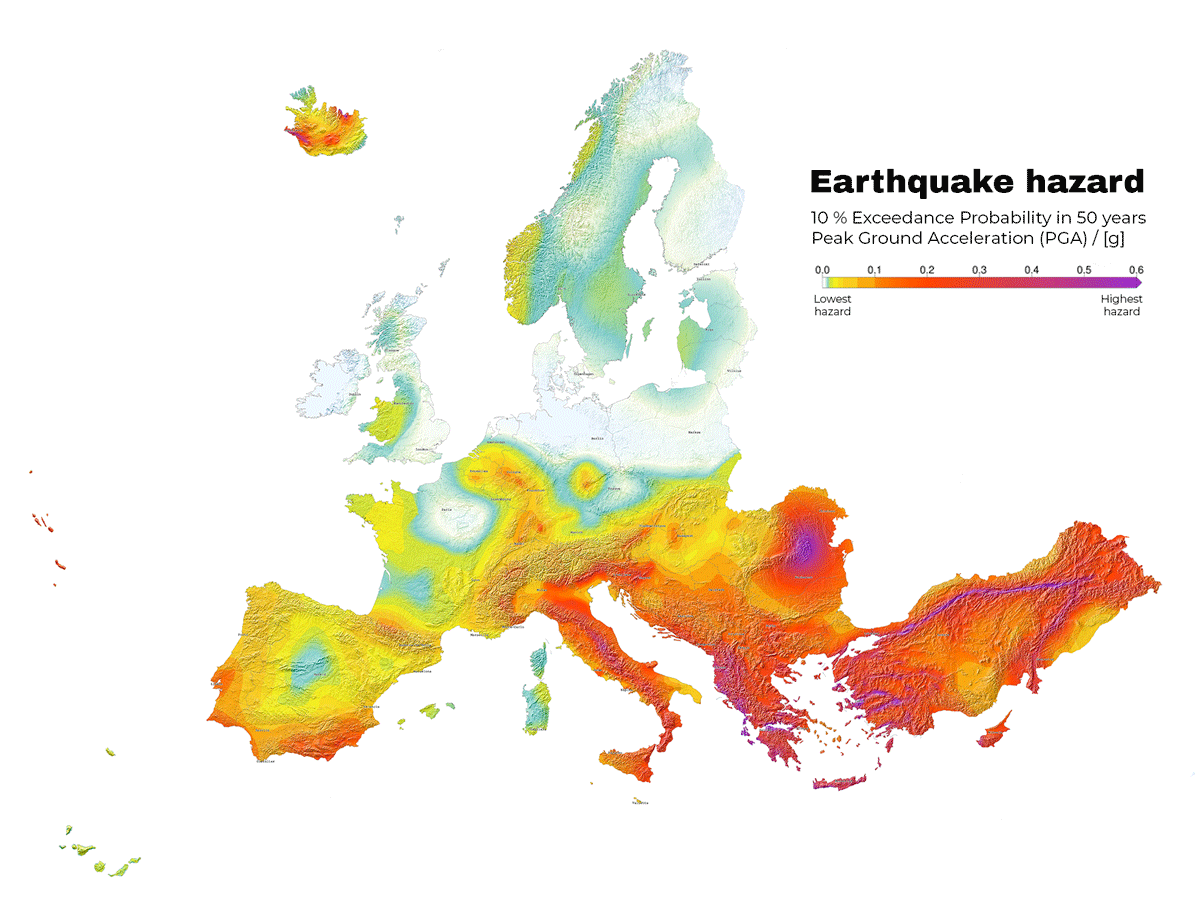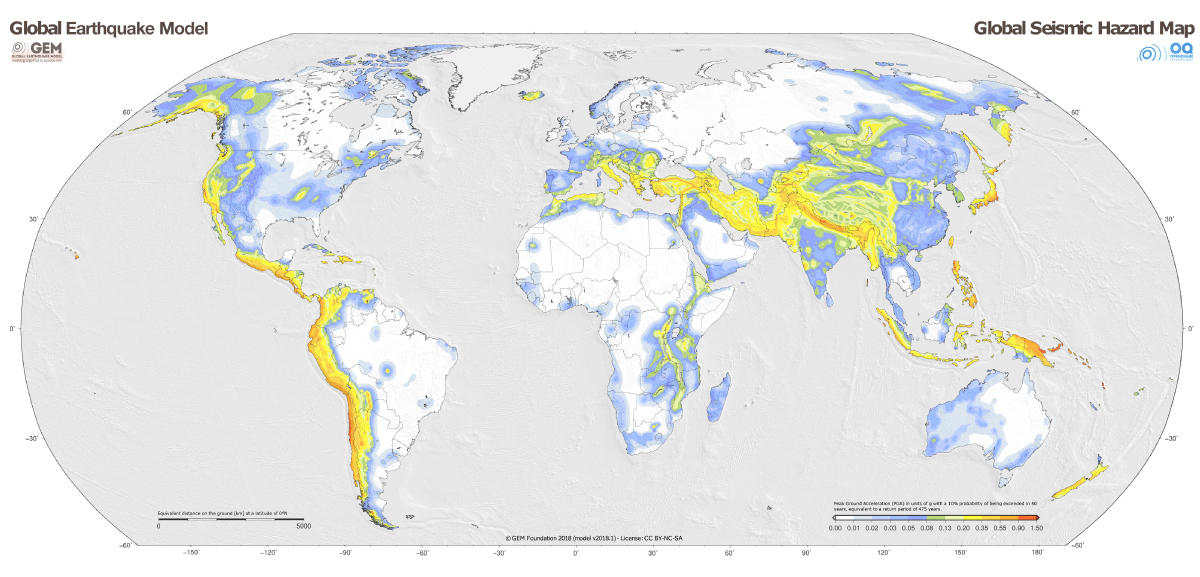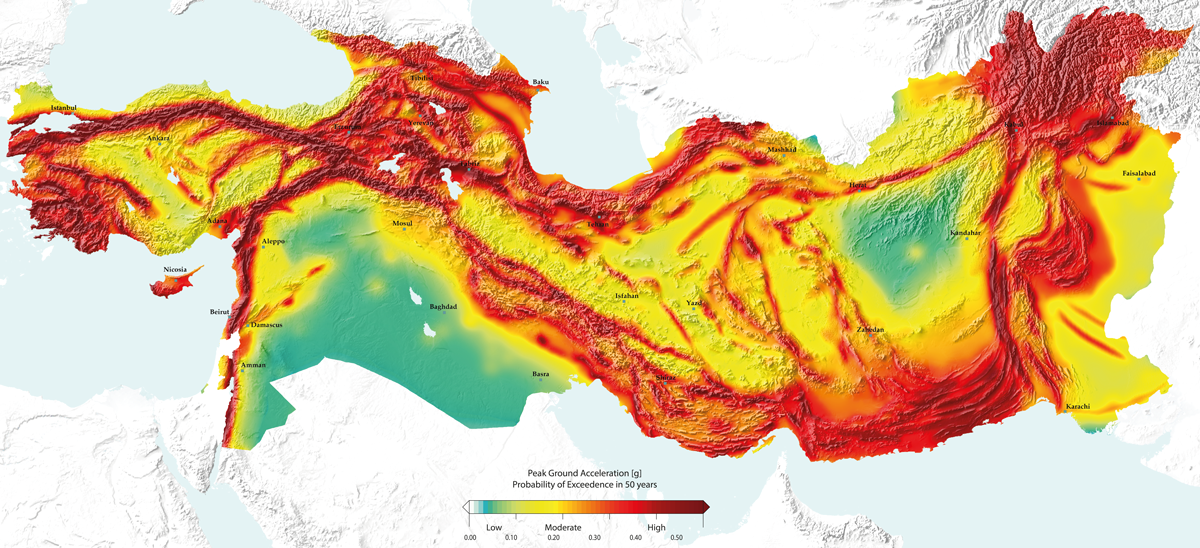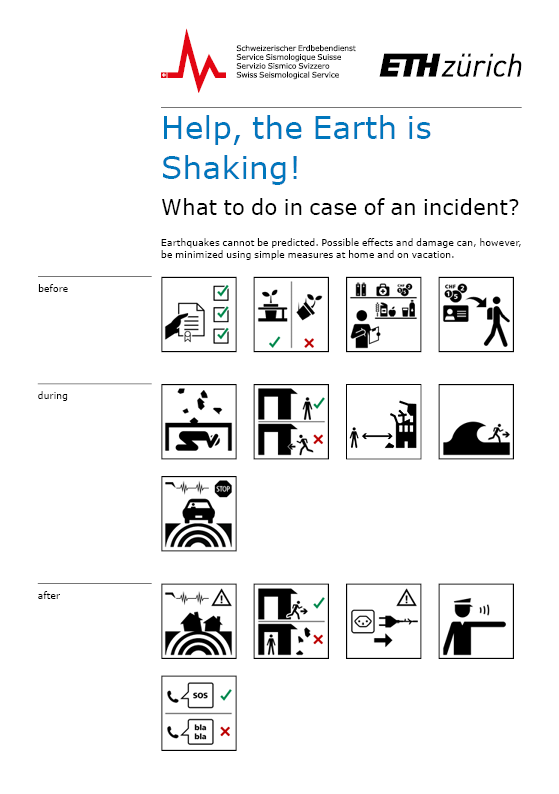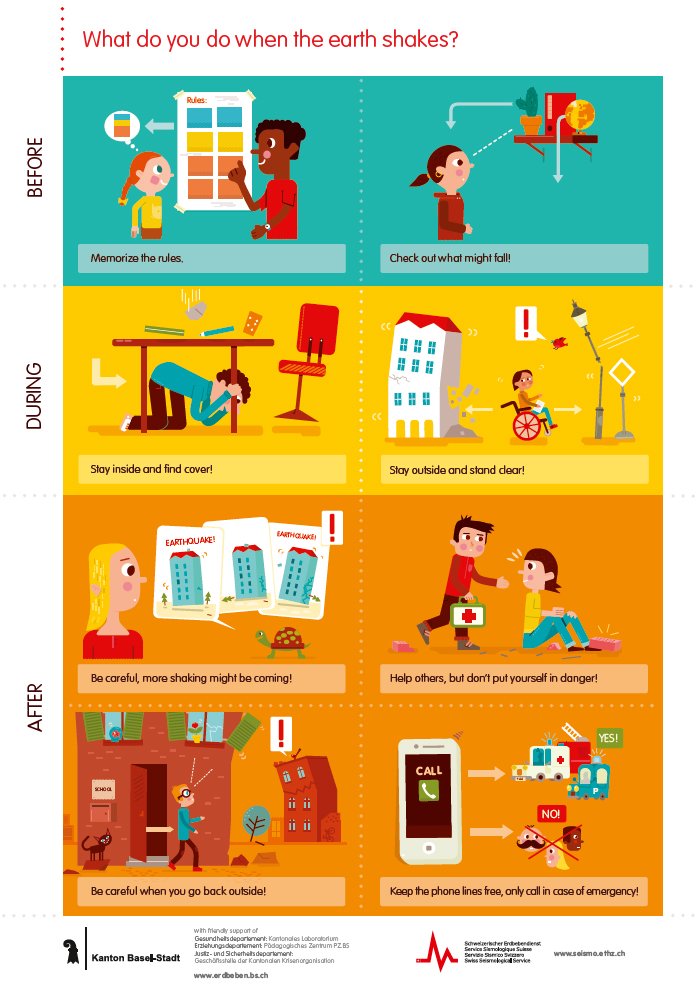Earthquakes cannot be predicted and there is no comprehensive protection against them. However, you can take the following personal precautions when travelling to an earthquake-prone area.
Before starting your journey, you may wish to find out if your destination is often affected by earthquakes. Further down this page you will also find maps and a selection of countries particularly at risk from earthquakes. When travelling to an area recently hit by a major earthquake, ask your tour operator or the local authorities or media about the situation on the ground and what are the consequences for you planned travel.
For shorter stays
- Familiarise yourself with the recommended behaviour in the event of an earthquake.
- When you arrive at your accommodation, take a moment to find out where you might seek protection in the event of an earthquake (e.g. underneath a sturdy table or bed).
- Arrange with your fellow travellers where you would meet up after a quake or how you would get in touch with each other. Please note that mobile telephony and the power supply may not work for quite some time after a major event. Parks and open spaces make suitable meeting places.
- Make sure that you always have access to a modest cash reserve and to your passeport or ID.
- If possible, when choosing accommodation or renting an apartment or house, ask about its earthquake resistance. Take note of the kind of geology the building is located on (in general the softer it is and the more sediment it contains, the worse is its performance in earthquakes) and avoid buildings with soft ground floors (e.g. large shops at ground level with just a few columns supporting the floors above them) or locations in narrow streets or on steep hillsides.
For longer stays
- Put together a first-aid kit.
- Keep emergency provisions at hand (see flyer „provisions“ from the Federal Office for National Economic Supply FONES).
- Copy important documents like passports and driving licences and have them to hand in the event of an earthquake.
- To get through power outages, have a flashlight, battery-powered radio and cash to hand (money withdrawals from ATMs may no longer be possible).
- Secure any items susceptible to damage from tremors and/or that could fall down and cause injury. These include such things as ceiling panels, shelves and their contents, televisions, music systems and lighting.
- Make a list of key telephone numbers, including those of the local police station, fire service and paramedics, as well as of the responsible embassy and/or nearest consulate. Save these numbers in your mobile phone, leave a copy in a readily accessible place and/or print it out in a small format to keep in your wallet.
- Find out how to switch off gas, electricity or water supplies in the event that you need to do so.
The recommended response during and after an earthquake abroad is no different from the behaviour recommended in the event of seismic activity in Switzerland. When staying in coastal areas you should pay special attention to the possibility of tsunamis. If you feel seismic tremors on a flat stretch of coast, move to higher ground inland as quickly as possible. Even more distant earthquakes can cause tsunamis close to where you happen to be. Heed and follow the instructions issued by the local authorities and find out in advance about local tsunami warning systems and escape or evacuation routes. Leave your place of refuge only after the local authorities have sounded the all clear, since more waves may follow initial ones, sometimes only after a lengthy time lag.
Here is an overview of the various official tsunami warning service providers: itic.ioc-unesco.org
Europe
In Europe, Greece, Italy, Turkey, Cyprus, the Balkan states, Iceland and Romania are particularly earthquake prone. Switzerland, like Portugal and Spain, is subject to a moderate earthquake hazard. Countries like Germany, Norway and Great Britain are at little risk of seismic activity, although earthquakes cannot be completely ruled out in these regions either.
Detailed information on the earthquake hazard and earthquake risk in Europe can be found at www.efehr.org.
